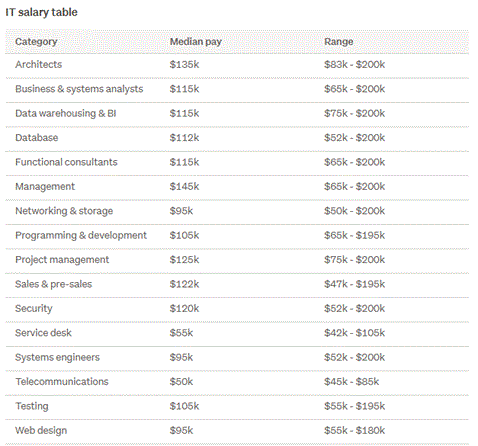2011英语六级考试语法辅导:情态动词+have+ done
2011-01-10 00:00:00 · 作者:编辑部
四六级冲刺备考 考生们已进入2011年6月
2011四六级
★ 英语六级考试写作提高必备10大功能句型
★ 2011六级考试听力对话一般性解题原则
★ 2011英语六级考试单词边练边记
★ 应对四六级考试写作词汇量不足3大措施
2010四六级
★ 2010年12月大学英语四级考试答案汇总
★ 2010年12月大学英语六级考试答案汇总
★ 名师解析2010年12月大学英语四级考试
★ 名师点评2010年12月六级 2大显著变化

2011四六级VIP全程班:早准备 早通关
1、Must have done的含义。“must have+过去分词”表示对过去的推测,意思是“一定已经,想必已经,准是已经….”,只用于肯定句中。例如:
The streets are wet. It must have rained. 街道是湿的,准是下雨了。
He must have been drinking beer. 他肯定一直喝啤酒来着。
若要表示否定,要用“can’t/couldn’t+ have+过去分词”,意 思 是“不可能”:
The money can’t have been lost there. 钱不可能是在那儿丢的。
2、 May/might have done 的含义。“may/might have+过去分词”表示对过去的推测,意思是“也许已经┅,可能已经…”。用于肯定或否定句中。疑问句中用can或could. “might(不是may)have+过去分词”也表示“本来可以…”的意思,含有责备的口气,用来批评人。例如:
He may have gone to bed. 他可能已经上床睡觉了。
She might not have settled the problem. 她可能尚未解决那个问题。
You might have told me earlier. 你本可以早点告诉我的。(埋怨责备)
Don’t do that again. You might have been fired. 别那么干了,会把你解雇的。(责备,警告)
You might have succeeded if you had tried. 假如你尝试过,或许已经成功了。(虚拟语气,不满)
3、needn’t have done的含义。“needn’t+ have+过去分词”表示“作了不必做或不需要做的事”。 可译成“大可不必”,“本来不需要”。例如:
I needn’t have borrowed the money yesterday. 昨天我根本不需要借钱的。(实际上已经借了)
You needn't have come so early. 你不必那么早来嘛。
4、can/could have done:用来谈过去的情况
(1)在疑问句、否定句中,表示怀疑和不可能,这时它们没有时间上的差别,只是could的语气更弱一些:
Who could have taken them? 谁会把它们拿走了呢?
Where can he have gone? 他可能到哪儿去了呢?
He can’t have taken it home. 他不可能是带回家去了。
She couldn’t have left so soon. 她不可能这么快就走了。
I don’t see how I could have done otherwise. 我看不出我当时还有别的做法。
Who could have supposed you were going to do such a thing? 谁会想到你会做出这样的事情。
Nobody could have foreseen such a calamity. 这样的灾祸谁也不会预想到。
(2)could have done(但不是can)在肯定句中,表示“那时本来可以…;差点就要…”,有时用来进行婉转地批评(与might同意,但语气更强一些):
We could have solved the problem in a more reasonable fashion. 这个问题我们本来是可以更合理得解决的。
He could have told her, but he did not choose to. 他本来可以告诉她的,但他不愿这样做。
When she heard the news, she could have cried. 听了这消息,她简直要哭出来了。
I could have died laughing. 我简直要笑死了。
You could have been more considerate. 你其实可以想的更周到一些。
We could have started a little earlier. 我们其实可以更早一些动身的。
The result could have been better. 结果本可以更好一些。
5、should/ought to have done的含义。 “should/ought to have+过去分词”表示“过去应该做谋事却没有做”;“should not/ought not to have+过去分词”表示“做了不应该做的事”。含有责备或遗憾的意思。例如:
You shouldn’t /oughtn’t to have come here alone at such a late hour. 你这么晚的时候本不一该一个人来这里的。(实际是一个人来的)
She should/ought to have gone there alone. 她本该一个人去那里的。(实际上不是)
You should have come here ten minutes earlier. 你本应该早10分钟来才是。
The boy shouldn’t have been playing the piano. 那孩子不应该一直在弹钢琴。
6、might, may, must表示推测时的区别: may,might, must可表示 推 测“可能”.根据表示可能性的大小,我们把这三个词排列为:might
It might rain tomorrow. (将来)明天可能下雨。
They might be watching TV now. (现在)他们可能正在看电视。
Jane might have visited the Summer Palace last year. (过去)去年珍妮可能去过颐和园。
He may have something important to do. (现在)他可能有更重要的事要做。
They may have been to Shanghai last summer. (过去)去年夏天他们可能去过上海。
There must be something wrong with him. (现在)他肯定出问题了。
He must have made a mistake. (过去)他一定是犯了个错误。

最后冲刺:名师团在线指导12月四六级备考
四级历年真题(2001-2009)
2001年1月 | 2001年6月 | 2002年1月 | 2002年6月 | 2003年1月 |
2003年6月 | 2003年9月 | 2004年1月 | 2004年6月 | 2005年1月 |
2005年6月 | 2005年12月 | 2006年6月 | 2006年12月 | 2007年6月 |
2007年12月 | 2008年6月 | 2008年12月 | 2009年6月 | 2009年12月 |
六级历年真题(2001-2009)
2001年1月 | 2001年6月 | 2002年1月 | 2002年6月 | 2003年1月 |
2003年6月 | 2003年9月 | 2004年1月 | 2004年6月 | 2005年1月 |
2005年6月 | 2005年12月 | 2006年6月 | 2006年12月 | 2007年6月 |
2007年12月 | 2008年6月 | 2008年12月 | 2009年6月 | 2009年12月 |
【本文为找大学网转载,文章版权归原作者及原出处所有。文章系作者个人观点,不代表大学生在线立场,转载请联系原作者及原出处获得授权。有任何疑问都请联系(kf@zhaodaxue.cn)】
- 相关阅读
TOPS
- 日排行/
- 周排行/
- 原创
- 日排行/
- 周排行/
- 原创
- 1 无锡学院2022年6月英语六级准考证打印入口|时间:6月1日
- 2 2022年6月英语四级作文热门话题及范文:教育不公平
- 3 泰州学院2022年6月英语六级准考证打印入口|时间:6月1日
- 4 吉林四级考试时间2022年上半年
- 5 2022年6月英语四级作文热门话题及范文:网络游戏
- 6 宿迁学院2022年6月英语六级准考证打印入口|时间:6月1日
- 7 2022年6月英语四级作文热门话题及范文:电力短缺
- 8 苏州城市学院2022年6月英语六级准考证打印入口|时间:6月1日
- 9 2022年6月英语四级作文热门话题及范文:手机的利弊
- 10 常熟理工学院2022年6月英语六级准考证打印入口|时间:6月1日







